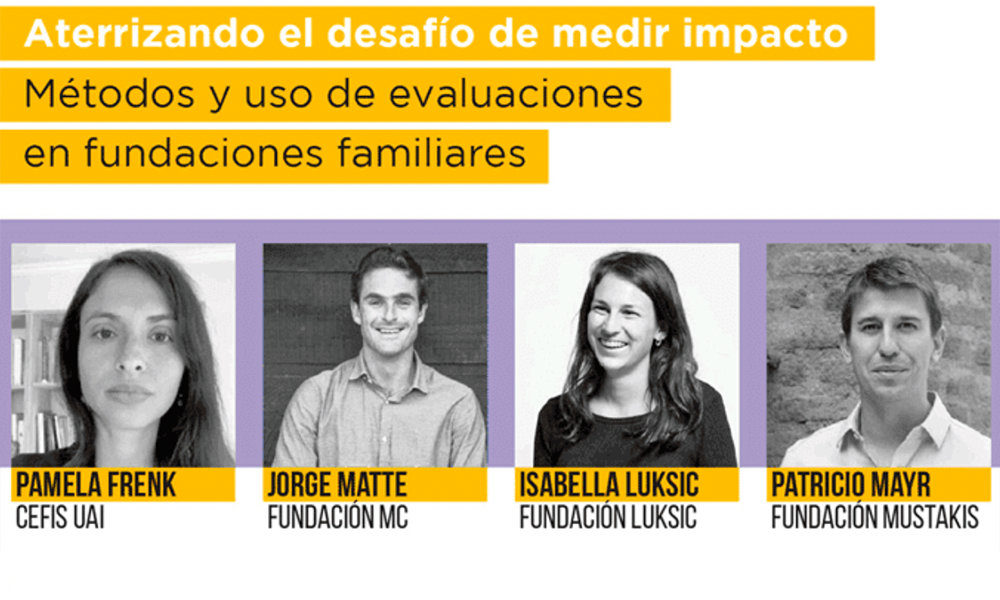We want to be a Foundation that ensures the quality of all of its programs and initiatives in which it takes part”. With these words, Isabella Luksic, coordinator of Evaluation and Measurement at the Luksic Foundation, began the presentations of “Landing the challenge of measuring impact: methods and use of evaluations in family foundations”, an event organized by the Centro de Filantropía e Inversiones Sociales (CEFIS) de la Universidad Adolfo Ibáñez (UAI) and the Asociación de Empresas Familiares (AEF).
The panel also included the participation of Jorge Matte, President of Fundación MC and Patricio Mayr, Director of Administration and Finance of Fundación Mustakis, who shared the experience of these foundations, their methodologies and lessons learned when evaluating the social impact of their programs.
Jorge Matte commented that the recent MC Foundation “was born with the objective of structuring, professionalizing and improving the different donations of the Matte Capdevilla family”, where he explained that its work model is based on three pillars, firstly the impact, through rigorous methodologies to obtain a sustainable impact over time, secondly an effective operation and finally the joint work with articulators of the ecosystem.
Patricio Mayr, for his part, pointed out that the Mustakis Foundation began the evaluation process in 2011. “During 2020, with the arrival of the coronavirus, the Foundation carried out a redefinition of the organizational purpose based on a new theory of change, with a more structured area of evaluations. In 2021, we incorporated new evaluation instruments based on processes, results and impact to share tools with our contributions to third parties”.
On behalf of the Luksic Foundation, Isabella Luksic explained that the Evaluation and Impact Measurement area is a central pillar of the organization as it responds to the objective of ensuring the quality of its interventions, through the use of evidence and the application of evaluation methodologies in the different stages of each program: design, implementation and results. Under this system, the organization can, on the one hand, count on solid designs and foundations, and on the other, apply follow-up at all stages of its initiatives in order to implement improvements or adjustments when necessary.
“We have seen three family foundations that have incorporated evidence, evaluation and measurement in their programs, from different aspects, forms and approaches. There is no one way to do it,” said Magdalena Aninat, director of UAI’s CEFIS. Aninat stressed the importance of having a “more effective” philanthropy and of having evidence in decision-making when it comes to allocating financial, human and time resources to measure the impact of different initiatives that seek to contribute to a better Chile.

